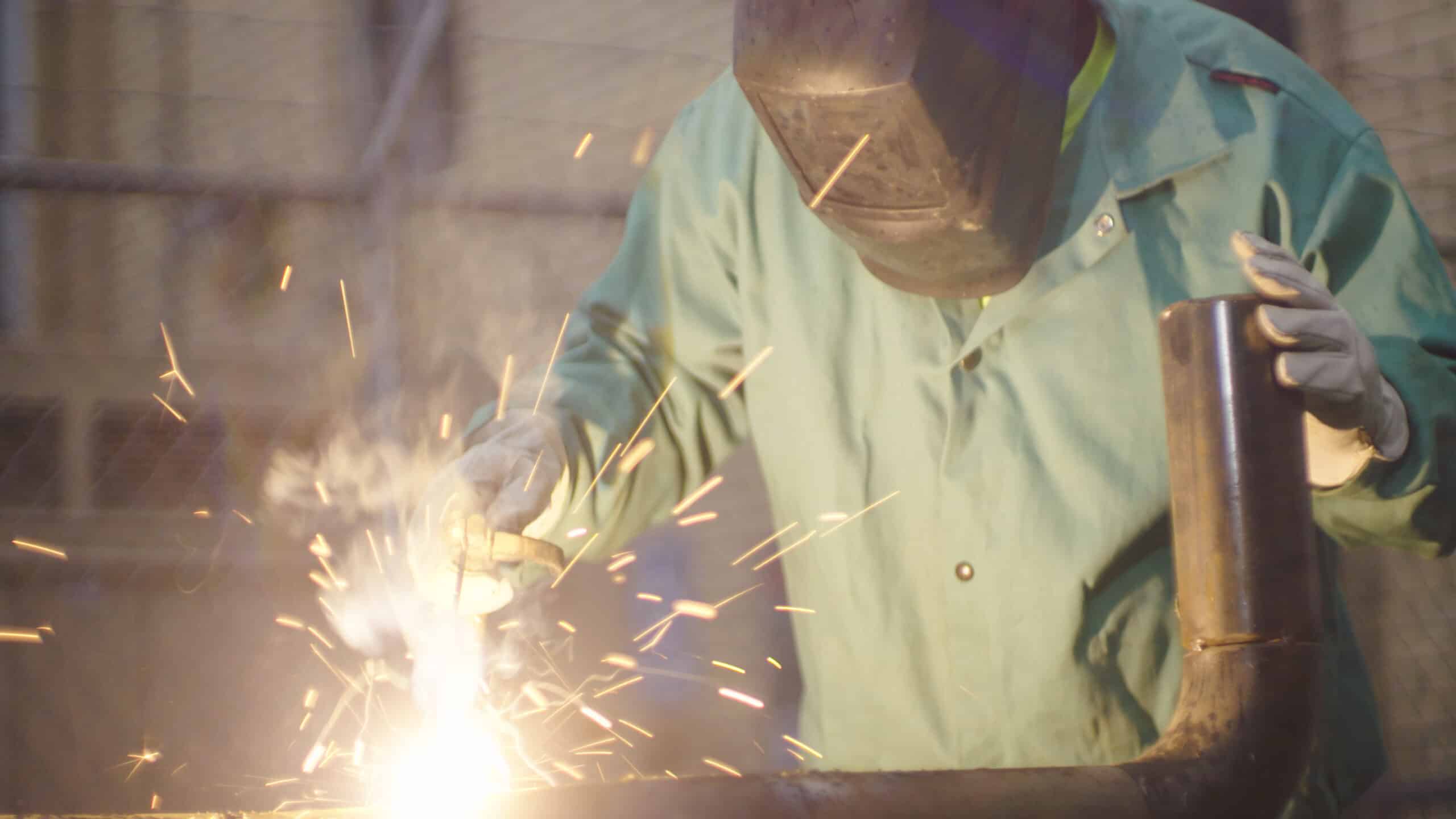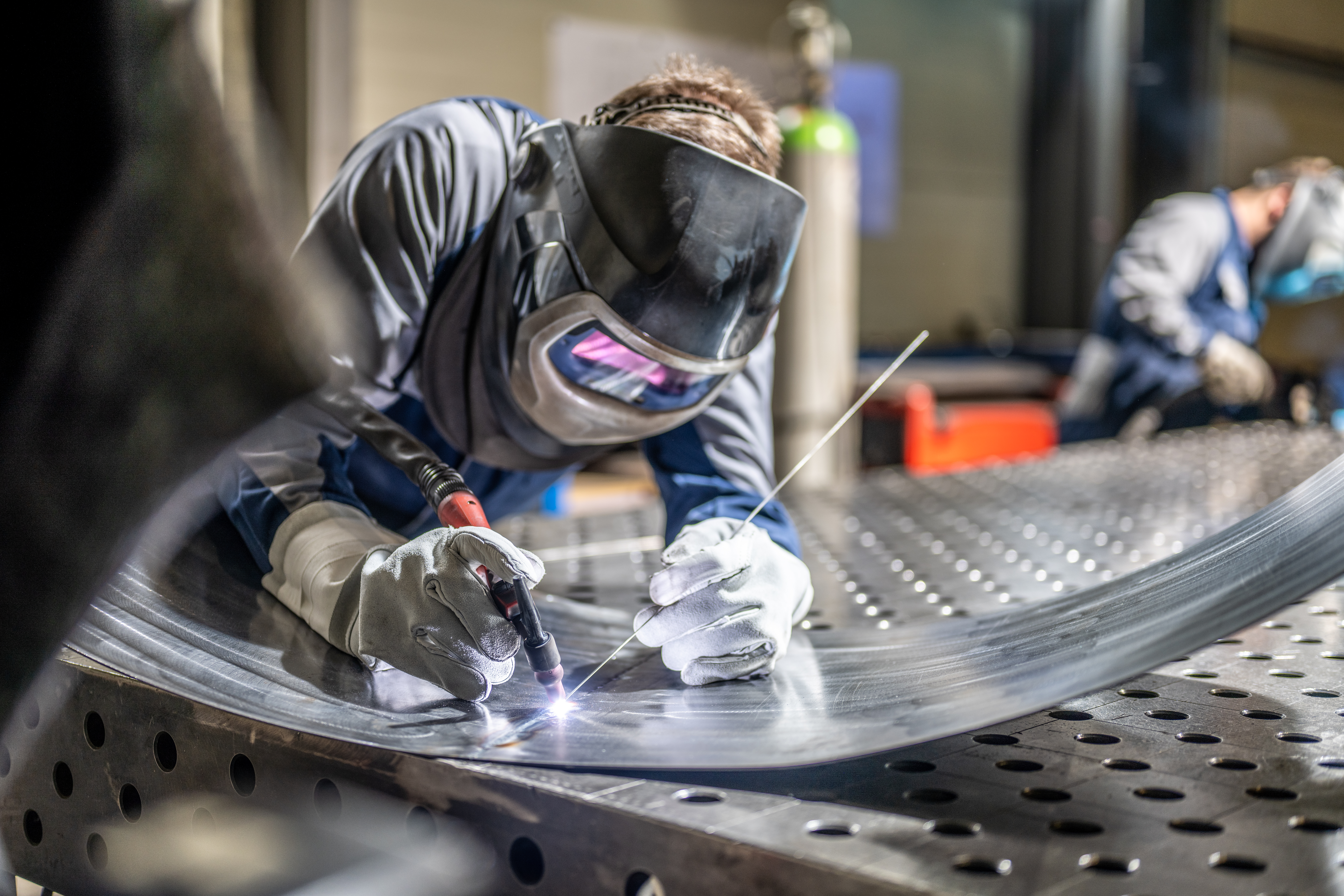
What Is Manufacturing Experience?
Manufacturing experience refers to hands-on work in a production environment where associates create, assemble, or process goods. Individuals can gain this experience in various manufacturing jobs, from small workshops to large factories, and working with machinery, tools, and technology to produce goods. While specific tasks may differ depending on the type of manufacturing job, most experience in the industry typically includes the following elements:
- Operating machinery or equipment: Running machines that manufacture or assemble parts and products.
- Following production processes: Adhering to established procedures to ensure products are made accurately and efficiently.
- Maintaining safety standards: Ensuring a safe work environment by following protocols and using equipment properly.
- Collaboration: Working as part of a team to meet production goals, resolve issues, and improve workflow.
Let’s dive into the three main types of manufacturing jobs and what kind of experience you’ll need for each.
1. Production and Assembly Roles
What They Do: Production and assembly workers are responsible for operating equipment, assembling products, and ensuring they meet production targets. These jobs often involve working on an assembly line, using tools to put together components, or overseeing a specific part of the production process.
Experience You Need: Entry-level production roles usually require little to no previous experience, though familiarity with working in a fast-paced, hands-on environment is a plus. Experience in using hand tools, following assembly instructions, or working in a factory setting can give you an edge. Many companies provide on-the-job training, but having basic knowledge of how production lines work or any technical or mechanical experience is beneficial.
As you move up in production roles, experience in operating more complex machinery and a deeper understanding of production processes become important. Advanced roles might require specific experience in machine operation, assembly procedures, or specialized production techniques like welding or soldering.
Skills That Count:
- Mechanical aptitude
- Ability to follow detailed instructions
- Basic troubleshooting and problem-solving
- Familiarity with safety protocols and standards
2. Machine Operation and Maintenance Roles
What They Do: Machine operators and maintenance technicians play a vital role in ensuring the smooth running of production machinery. Machine operators control equipment that produces, assembles, or processes products, while maintenance technicians repair and maintain this equipment to prevent breakdowns and reduce downtime.
Experience You Need: Employers typically require technical experience for entry-level machine operator positions, even if it doesn’t directly relate to manufacturing. Experience with operating machinery in other industries (such as construction or agriculture), familiarity with tools, or any vocational training in mechanical fields can help you secure a role.
For maintenance technicians, prior experience in repair work, mechanical systems, or electrical troubleshooting is essential. Many maintenance roles require certification or technical education in areas such as HVAC systems, hydraulics, or electronics, so formal training can be a significant advantage. Hands-on experience gained through apprenticeships, technical programs, or prior roles in maintenance is highly valuable.
Skills That Count:
- Experience with specific types of machinery (CNC, lathes, etc.)
- Problem-solving abilities for diagnosing and fixing equipment
- Technical knowledge of mechanical and electrical systems
- Ability to read blueprints, schematics, or machine manuals
3. Quality Control and Inspection Roles
What They Do: Quality control (QC) inspectors ensure that products meet specific standards and specifications before they leave the manufacturing facility. This involves testing products, identifying defects, and ensuring that everything from materials to the final product meets quality benchmarks.
What Experience Is Needed: Quality control positions often require previous experience in manufacturing, particularly in roles where attention to detail is crucial. Experience in handling or assembling products, testing procedures, or using measuring instruments like calipers and micrometers can be very beneficial.
More advanced QC positions may require familiarity with specific testing methods, understanding industry regulations, and working knowledge of quality management systems like ISO standards. Experience in using statistical process control (SPC) or Six Sigma methodologies is also a significant asset in higher-level QC roles.
Skills That Count:
- Attention to detail and precision
- Knowledge of testing equipment and measurement tools
- Understanding of quality standards and procedures
- Analytical skills for identifying defects and ensuring compliance

How to Gain Manufacturing Experience
No matter what stage your manufacturing career is at, there are several ways to gain experience:
- Entry-Level Jobs: Starting in a hands-on role, like a production or assembly worker, can give you valuable experience in a manufacturing environment. Even if the job doesn’t require previous experience, you’ll gain practical skills that can help you move into more specialized roles over time.
- Apprenticeships and Training Programs: Many manufacturing facilities offer apprenticeship programs that allow you to learn on the job while gaining specific technical skills. Vocational or technical schools often provide certifications in machine operation, maintenance, or quality control.
- Internships and Temp Work: Temporary or part-time jobs in manufacturing can be an excellent way to build experience without committing to a full-time role right away.
How Staffing Services Help You Land Manufacturing Jobs
If you’re looking for manufacturing jobs, staffing services like NCW can help connect you with employers seeking new talent. NCW specializes in matching job seekers with positions that fit their skill sets. Here’s how NCW can assist you:
- Access to a Range of Jobs: NCW works with leading manufacturers to offer a wide range of job opportunities, from entry-level to more advanced roles.
- Job Matching: Based on your experience and interests, NCW helps you find the right fit. Whether you have experience in machine operation, quality control, or production work, our recruiters work to match you with your interests.
- Career Support: NCW offers powerful resources to help you build your resume, prepare for interviews, and develop your career in manufacturing.
Want to learn more about the NCW Difference? Check out our Core Values to learn more!
Start Building Your Manufacturing Experience Today!
Manufacturing experience is your ticket to a rewarding career in this dynamic industry. Whether you’re just starting out or seeking to boost your career, NCW is here to help you find your next opportunity. Ready to take the next step? Let’s get to work!
